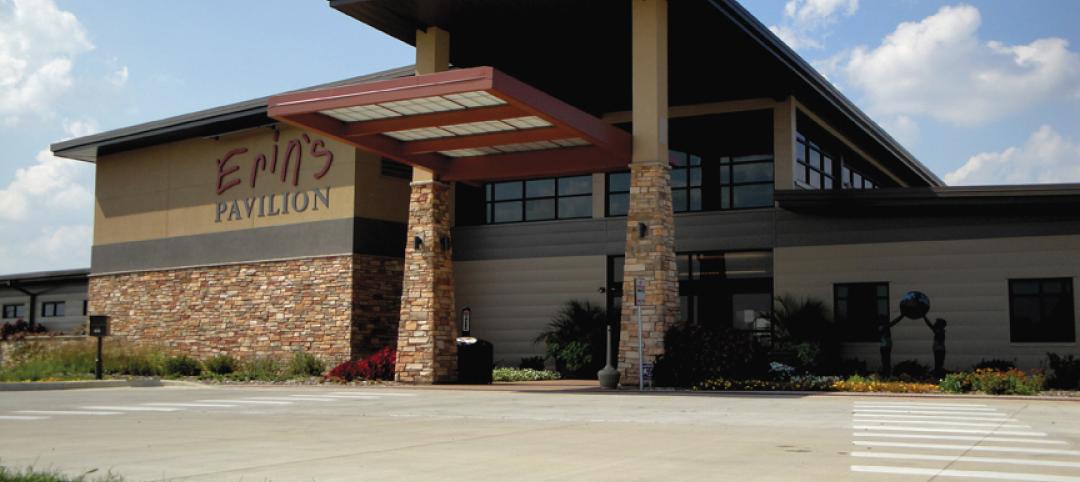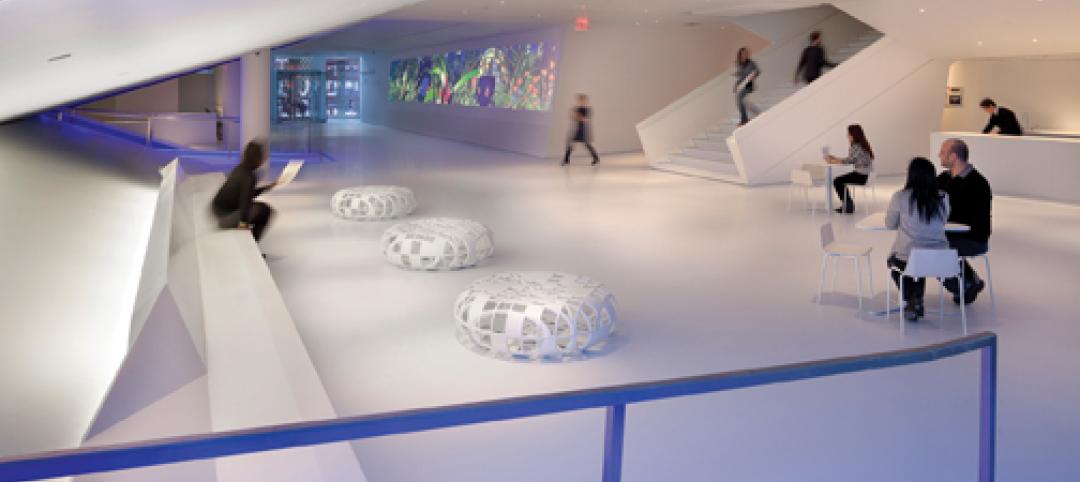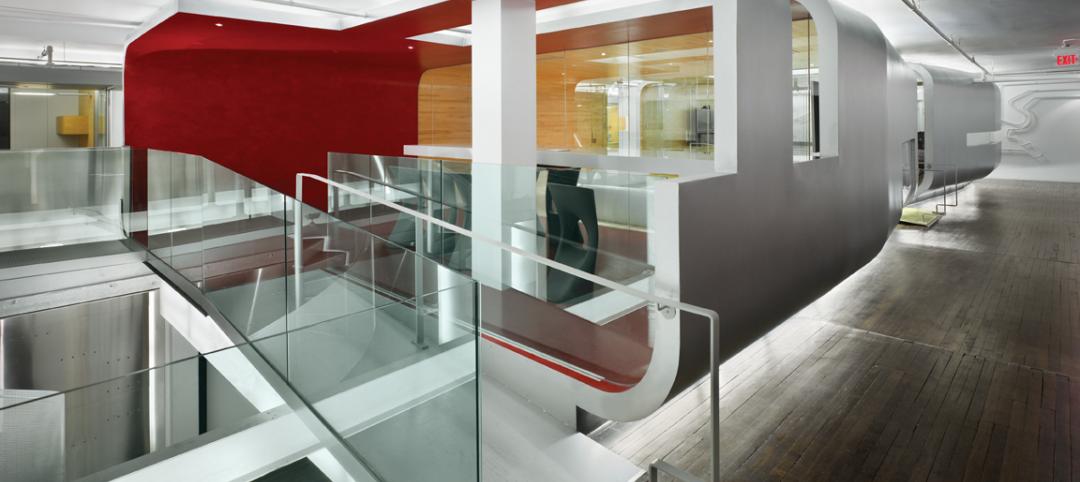Founded in 2009 with an initial endowment of $1.9 million, HMC’s nonprofit Designing Futures Foundation (DFF) has donated about $230,000 in its three years of existence, including $105,000 in scholarships to California students. The grants help promising high schoolers with an interest in architecture, design, engineering, education, or healthcare pay for expenses like test preparation services, computers, and college entrance exam fees and tuition. The scholarships can be extended for up to five years of college.
Executive Director Adrienne Luce says the foundation serves as an extension of HMC’s social responsibility. The DFF’s Community Project initiative provides grants of up to $10,000 to HMC employees for projects for that benefit the communities in which they live and work.
For example, three HMC employees—Pablo La Roche, PhD, LEED AP, Sustainable Design Director; Eera Babtiwale, LEED AP BD+C, Environmental Analyst; and Sandy Kate, REFP, LEED AP, Associate Principal/Senior Education Facilities Planner—proposed a sustainability education program at McKinley Elementary School in Santa Monica. The DFF sponsored nine workshops for 220 McKinley students in grades 3-5 over three days, providing 13½ hours of instruction on energy, water, and waste.
The DFF has funded scholarship programs at Ramona High School, a healthcare academy in Riverside, Calif., and at the Center for Advanced Research and Technology, in Fresno. The DFF also supports Bright Prospect, a college access and retention program in Pomona, and hosted a career day for students aspiring to become architects, engineers, or designers, topped off by a tour of the Ontario office.
Scott Plante, AIA, LEED AP, Senior Project Designer, won a $7,500 DFF grant to help restore the historic Micheltorena Steps in Silver Lake, the vintage 1920s-LA neighborhood where he lives. “The steps are on a main route to the school, and they’re in a state of disrepair,” says Plante, who serves on the Silver Lake Urban Design Committee. The $24,000 project, with donations from the DFF, the Silver Lake Neighborhood Council, and the Safe Routes to Schools program, plus a lighting upgrade by the local water and power utility, will be completed in two phases starting next June.
See the video about the DFF and the Micheltorena Steps project at: www.BDCnetwork.com/HMC/DFF.
At the university level, the Designing Futures Foundation has:
- Provided a $10,000 seed grant to help Cal Poly Pomona start a healthcare architecture studio, the first of its kind west of the Mississippi.
- Worked with Harvey Mudd College and the California Institute of the Arts on a project that uses online games and resources to foster greater environmental responsibility among college students.
- Funded an $18,000 water demonstration garden at Norco College, a two-year institution in Riverside.
- Sponsored research by HMC staff and consulting experts at UC San Diego’s Calit2 StarCAVE virtual reality environment on the effects of the built environment on building users. +
Related Stories
| Apr 14, 2011
USGBC debuts LEED for Healthcare
The U.S. Green Building Council (USGBC) introduces its latest green building rating system, LEED for Healthcare. The rating system guides the design and construction of both new buildings and major renovations of existing buildings, and can be applied to inpatient, outpatient and licensed long-term care facilities, medical offices, assisted living facilities and medical education and research centers.
| Apr 13, 2011
National Roofing Contractors Association revises R-value of polyisocyanurate (ISO) insulation
NRCA has updated their R-value recommendation for polyisocyanurate roof insulation with the publication of the 2011 The NRCA Roofing Manual: Membrane Roof Systems.
| Apr 13, 2011
Professor Edward Glaeser, PhD, on how cities are mankind’s greatest invention
Edward Glaeser, PhD, the Fred and Eleanor Glimp Professor of Economics at Harvard University and director of the Taubman Center for State and Local Government and the Rappaport Institute for Greater Boston, as well as the author of Triumph of the City: How Our Greatest Invention Makes Us Richer, Smarter, Healthier, and Happier, on how cities are mankind’s greatest invention.
| Apr 13, 2011
Southern Illinois park pavilion earns LEED Platinum
Erin’s Pavilion, a welcome and visitors center at the 80-acre Edwin Watts Southwind Park in Springfield, Ill., earned LEED Platinum. The new 16,000-sf facility, a joint project between local firm Walton and Associates Architects and the sustainability consulting firm Vertegy, based in St. Louis, serves as a community center and special needs education center, and is named for Erin Elzea, who struggled with disabilities during her life.
| Apr 13, 2011
Virginia hospital’s prescription for green construction: LEED Gold
Rockingham Memorial Hospital in Harrisonburg, Va., is the commonwealth’s first inpatient healthcare facility to earn LEED Gold. The 630,000-sf facility was designed by Earl Swensson Associates, with commissioning consultant SSRCx, both of Nashville.
| Apr 13, 2011
Office interaction was the critical element to Boston buildout
Margulies Perruzzi Architects, Boston, designed the new 11,460-sf offices for consultant Interaction Associates and its nonprofit sister organization, The Interaction Institute for Social Change, inside an old warehouse near Boston’s Seaport Center.
| Apr 13, 2011
Expanded Museum of the Moving Image provides a treat for the eyes
The expansion and renovation of the Museum of the Moving Image in the Astoria section of Queens, N.Y., involved a complete redesign of its first floor and the construction of a three-story 47,000-sf addition.
| Apr 13, 2011
Duke University parking garage driven to LEED certification
People parking their cars inside the new Research Drive garage at Duke University are making history—they’re utilizing the country’s first freestanding LEED-certified parking structure.
| Apr 13, 2011
Red Bull Canada HQ a mix of fluid spaces and high-energy design
The Toronto architecture firm Johnson Chou likes to put a twist on its pared-down interiors, and its work on the headquarters for Red Bull Canada is no exception. The energy drink maker occupies 12,300 sf on the top two floors of a three-story industrial building in Toronto, and the design strategy for its space called for leaving the base building virtually untouched while attention was turned to the interior architecture.
| Apr 13, 2011
Former department store gets new lease on life as MaineHealth HQ
The long-vacant Sears Roebuck building in Portland, Maine, was redeveloped into the corporate headquarters for MaineHealth. Consigli Construction and local firm Harriman Architects + Engineers handled the 14-month fast-track project, transforming the 89,000-sf, four-story facility for just $100/sf.















